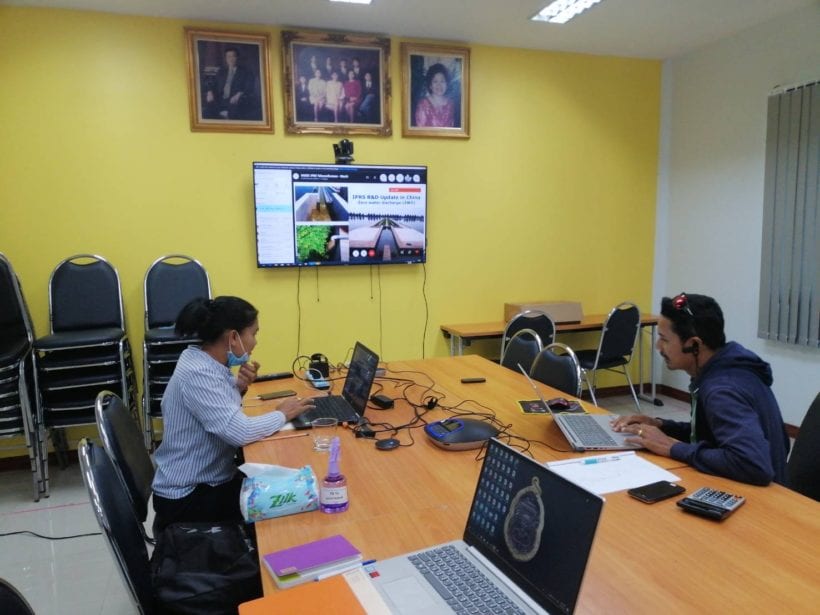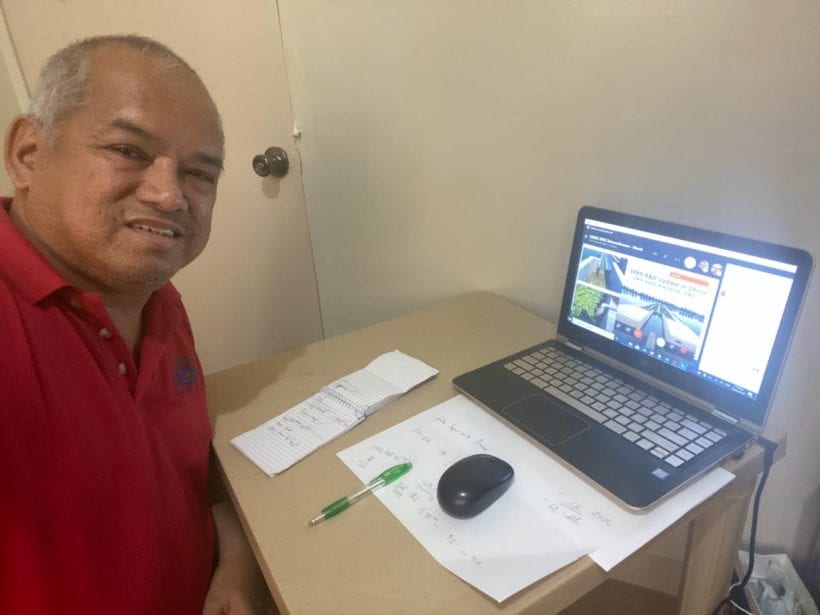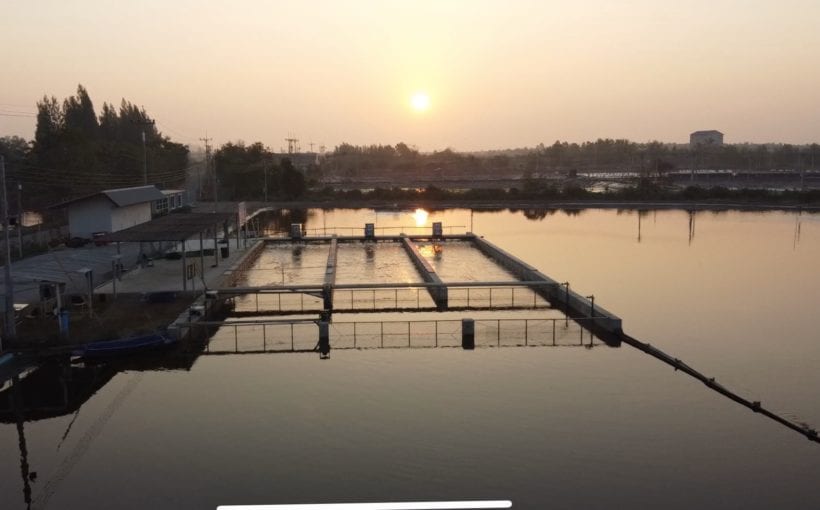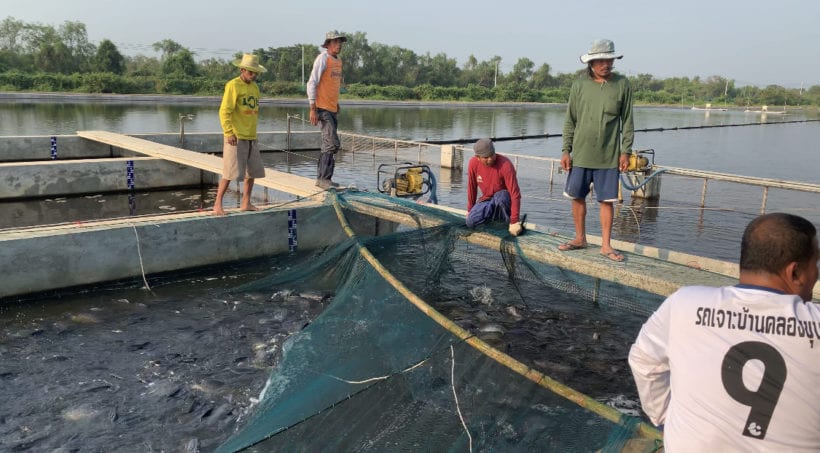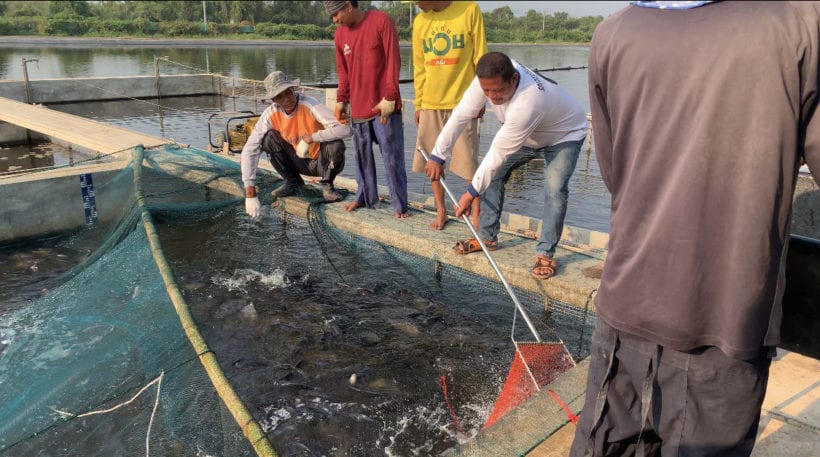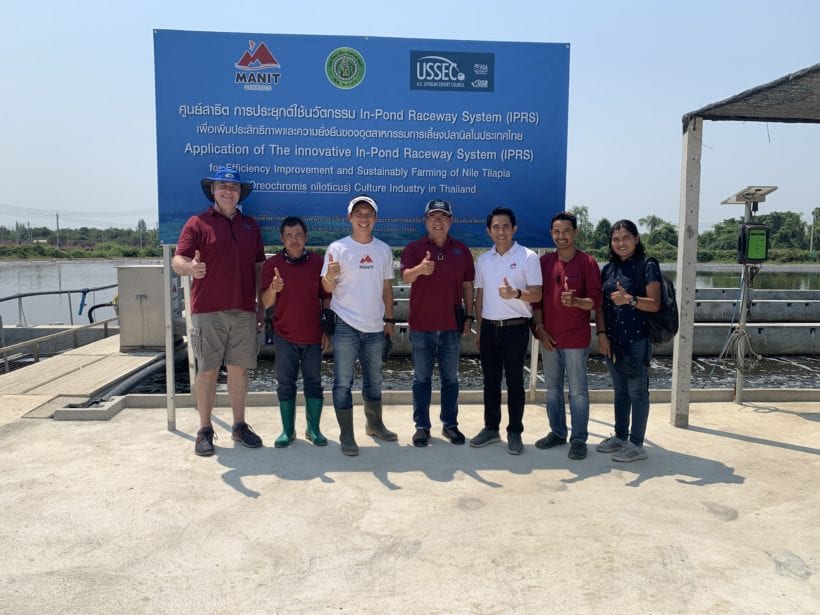USSEC IPRS Experts Teleconference with Key Industry Opinion Leader, IPRS User in Thailand
- Category:
- General News
- Virtual Events
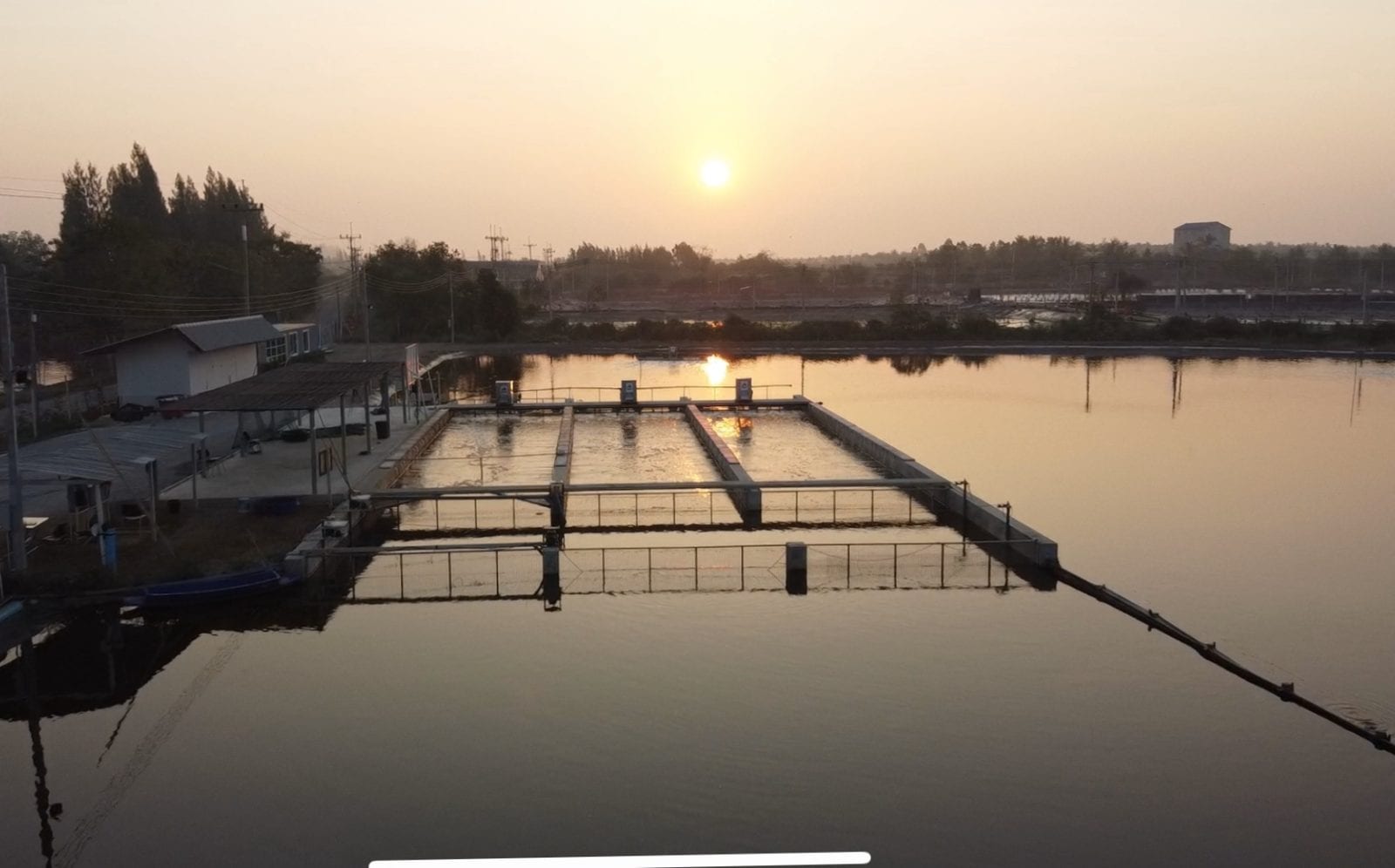
Manit Genetics, who both provides high quality tilapia fingerlings to Thai aquaculture farmers and its own fish farm, started the first fixed In Pond Raceway System (IPRS) pond farm operation in Thailand after attending USSEC’s IPRS seminar in October 2018 at the Asian Institute of Technology, Thailand. Manit Farm’s objective was to showcase the technology to the Thailand aquaculture industry and to their customers, while improving their own operations. They hope to see the IPRS technology both improve their and their customers’ profits and productivity as well as drive demand for more fingerlings.
In March 2019, Manit Genetics started the construction of a three-cell IPRS pond, completing it in September 2019. During the construction period, USSEC was involved in helping this cooperator through several site visits, training on site, and communication through various other channels. The IPRS farm was finally stocked on October 1, 2019.
The farm finished the first harvesting in the first cell of IPRS on March 17, 2020. Based on the visits by USSEC contractors during the start of the harvest the previous week and in follow-up discussions, USSEC felt that there was a need to discuss and upgrade the system at Manit Farm. Due to the COVID-19 pandemic, international USSEC IPRS experts were not able to travel to the site. However, a teleconference was arranged between two experts on IPRS technology: Dr. Jesse Chappell (Auburn University) and Mr. Zhou En Hua (USSEC China) with the owner and staff of Manit Genetics.
Various topics were discussed on the best methods to improve operations, including better waste management/removal approaches and improved management practices. There were also critical discussions on how to improve feed qualities to further improve performance and profitability.
The teleconference, which lasted about 3.5 hours, provided Manit Genetics and local USSEC contractors with knowledge and insights from the experience of USSEC’s IPRS experts. Although teleconference may not the optimal way to accomplish technical transfer, USSEC was able to aid this influential Thai opinion leader about how to improve and upgrade their IPRS technology for the future.
“Thank you very much to USSEC’s team,” says Amorn Luengnaruemitchai, Managing Director, Manit farm. “Manit farm. . .[is] convinced that IPRS technology will give more productivity, sustainability and benefits to Thai farmers for the future.”
Manit Genetics is one of Thailand’s biggest fish producers and the success of the first Thai IPRS will activate the fish farmers in Thailand to convert the traditional system to IPRS, increasing demand of U.S. Soy as the fish production using high quality feeds will be increased. Because the target of the fish will be for export, the feeds will need to incorporate certified sustainable ingredients, such as U.S. Soy Sustainability Assurance Protocol (SSAP) – verified U.S. soy products.
These videos show the IPRS at Manit Genetics.
